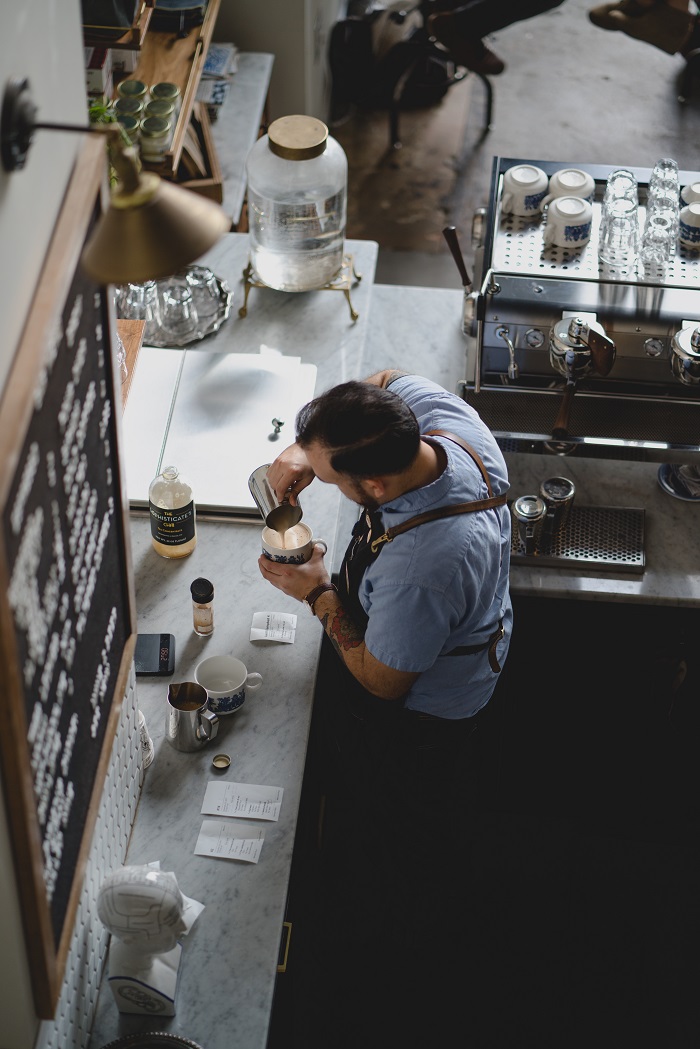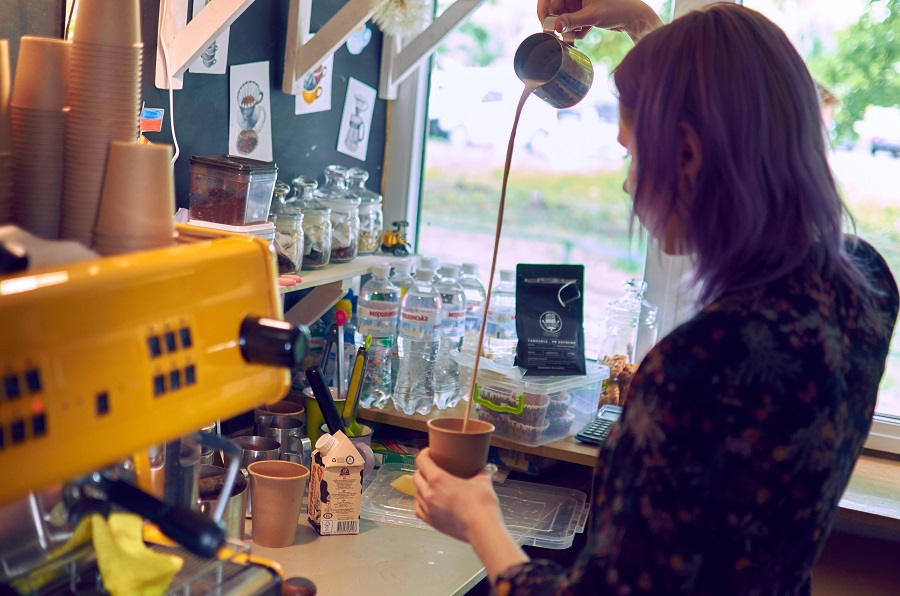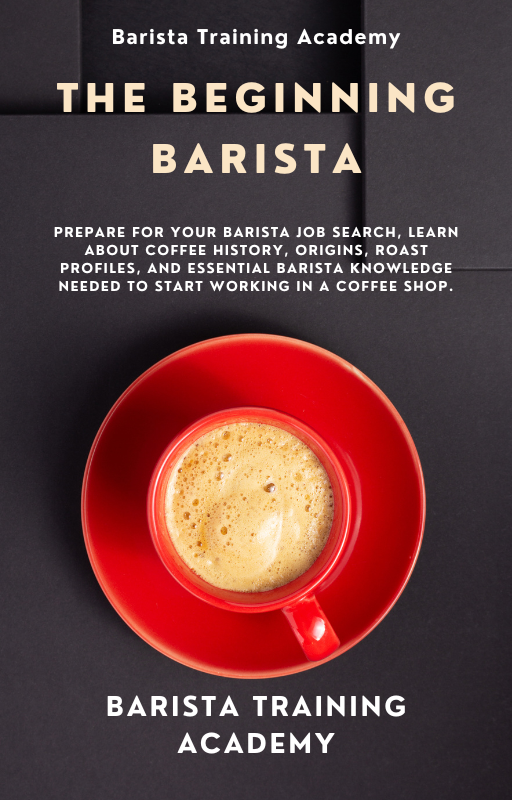Is Being a Barista Stressful?
 Being a barista can be stressful at times, depending on various factors such as the pace of the work environment, customer volume, and the complexity of orders.
Being a barista can be stressful at times, depending on various factors such as the pace of the work environment, customer volume, and the complexity of orders.
During busy periods, such as morning rushes or weekends, baristas may experience high levels of stress as they work to fulfill orders quickly and efficiently while maintaining quality and customer satisfaction. Additionally, handling multiple tasks simultaneously, managing long lines, and dealing with demanding or difficult customers can contribute to stress.
However, stress levels can vary significantly depending on the specific coffee shop, management style, and individual preferences. Some baristas thrive in fast-paced environments and enjoy the energy of busy shifts, while others may find it overwhelming.
Effective communication, teamwork, and time management skills can help baristas cope with stress and navigate challenging situations more effectively. Additionally, supportive coworkers and a positive work culture can contribute to a more manageable and fulfilling work experience for baristas.
Is Being a Barista Hard?
Being a barista isn't for everyone. Some natural aspects of the jobs can be challenging for some. However, the social aspects of serving coffee are what baristas need to navigate through.
For example, people expect to chat with baristas briefly. Communicating with other baristas and staff members is also essential. Physical labor can be challenging for some individuals, too. As a barista, you'll repeat a lot of the same physical motions to pull espresso shots, retrieve milk, bend knees, and lift bags of coffee beans.
In many cases, a coffee shop's main business hours occur in the morning. However, some people may be challenged to get up early. If you are not a morning person, you may want to apply for open barista positions that only need you in the evening.
Demanding customers require patience and a “long fuse.” Some customers can be downright rude, and they operate under the notion that employees won't talk back for fear of reprisals. (I firmly believe that baristas or anyone should not take any verbal or physical abuse. However, when dealing with the public, anything can happen.)
These and other aspects of being a barista can make a person think twice about working in coffee. And yet, these inherent elements could be what draws you into working for a coffee shop. What's great is that the more you learn about coffee, the more confident you'll be.
Barista positions often require:
- Being social
- Heavy communication
- Physical labor
- Early mornings
- Dealing with demanding customers
You've cleared the first hurdle if you are okay with working with those inherent points above. However, it should be stated that even if you are okay with dealing with challenging elements, they can still make your barista job hard. It's also essential for you to acknowledge that these items can be challenging for anyone and take steps to mitigate the aspects of them.
Obtaining experience can prepare you for a more involved career in coffee, such as being a coffee roaster or eventually opening up your own coffee shop. Still, they could prepare you for many industries and work environments. The silver lining is that the busier you are the potential is higher to make more money in tips.
Further Reading: Requirements to Be a Barista
Address The Challenges of Being a Barista
 When it comes to being social:
When it comes to being social:
Be friendly, but stay focused on your job. If you stay focused on your task, most reasonable people will see that you are busy trying to serve them coffee or prepping for additional customers – and may limit discussion. Instead, you can be friendly and polite and signal that you're trying to complete your job for them and other customers.
Regarding communication:
Always be considerate, speak directly, and play a role in dictating the nature of conversations. It’s often best to be transparent with your co-workers, fellow baristas, or customers. Communication is a part of any job, but you can bet that you'll often be communicating as a barista in a busy café. You can ask your coffee shop manager or owner to train you to deal with internal conflicts and provide clear guidelines on what you can do and what you can't (like paying for spoilt drinks, equipment, etc.).
Physical labor:
Lifting coffee, water, milk, and other boxes is typical for a barista. Use proper handling techniques, and don't overdo it. Utilize stepstools and get help from co-workers to lift, carry, or move heavy objects. Find ways to reduce repetitive motion, including moving some coffee equipment around if you need to. Wear comfortable shoes and place a floor mat with anti-slip and weight-absorbant material.
Early Mornings
Early mornings can be challenging for anyone if they go to bed too late. So make sure you block out your time to sleep the night before and take naps after your shift.
Dealing with demanding customers
Customers are our source of revenue. But occasionally, you will get rude, misogynistic, racist, or downright mean customers. Shut that stuff down. You don't have to take anyone's rudeness or crude comments. Instead, politely ask them to leave your place of business. In addition, it would help if you discussed how to deal with challenging customers with your supervisor. Ultimately, the coffee shop owner or manager is responsible for the safety of the employees and customers, and they need to mitigate conflict. Still, the question of who handles the situation should be discussed.
Further Reading: How to Be a Barista Fast With No Experience
Feeling Stressed?
How to Improve Your Experience as a Barista
Get Barista Experience
Working as a barista with no experience can make things more challenging. However, as you continue to work as a barista, you will be better prepared to handle more challenging scenarios. From challenging customers to serving uniquely made coffee beverages, your experience will help guide you.
We also want to highlight your personal and professional experience outside the coffee arena. Many baristas come from a wide array of backgrounds and life experiences. Your experiences matter when dealing with customers, co-workers, bosses, and the general public. You bring your talents, knowledge, and expertise to the table – and chances are your coffee shop is better for it.
Get Barista Training
Having the proper barista training will help make your job as a barista easier. Everything from understanding coffee flavor, grinding, pulling the perfect shot, and building drinks – barista training will help increase your knowledge base, help build your confidence, and increase your work efficiencies.
Our goal at Barista Training Academy is to deliver high-quality training to get you started on a path to a successful career.
Developing Trust
Developing trust with your supervisor or coffee shop owner is essential to deal with all the challenges you will often face during your time as a barista.
Trust takes time to develop. Misunderstanding and miscommunication can sometimes muddle trust, but keep pressing forward. As you and your co-workers grow, you'll be able to bring your growth to every scenario.
Solve Workflow Issues
Work hard to create more efficient ways to make coffee or move behind the coffee bar. This may include something small as adding non-slip floor mats, moving the espresso machine to a different location, or having the customer line start from another point. By working to solve practical issues to increase your workflow, you'll have a much easier time getting your work done.

Summary: Is a Barista Job Stressful?
Your barista job can be demanding and stressful. However, with adequate training, experience, and communication, you'll be able to reduce stress and other challenging factors.
As a barista, the chances are that you will be part of a team. Whether small or large, having good communication, fostering trust, and developing professionalism will help you create a safe space to grow, earn money, and have fun.
